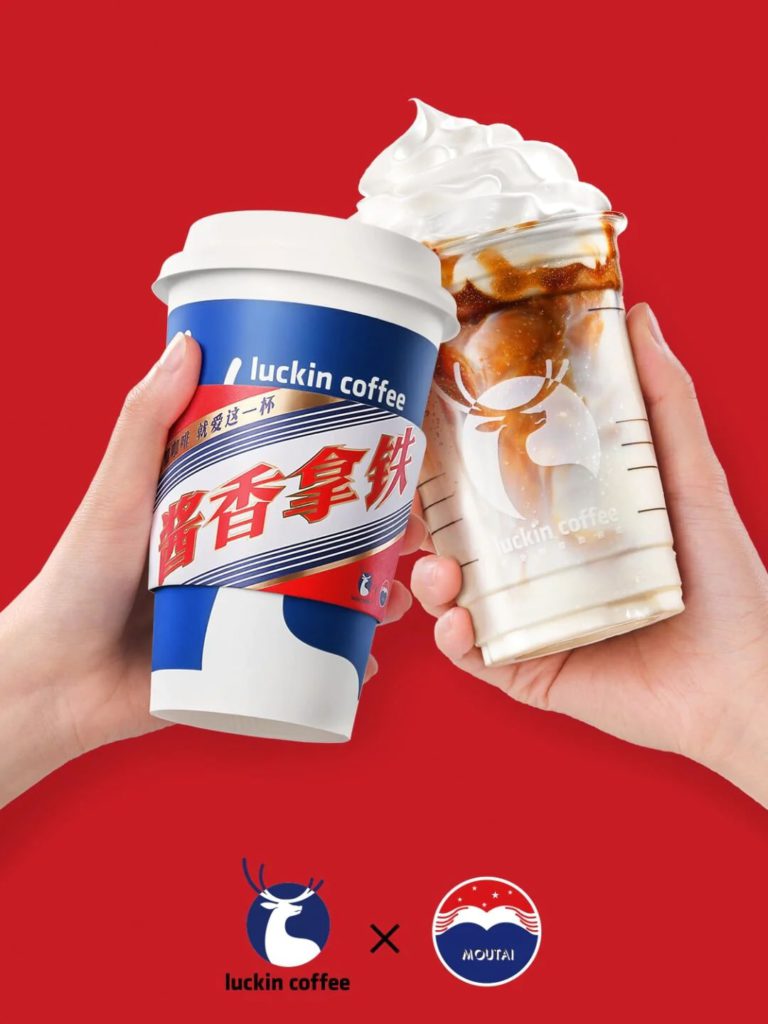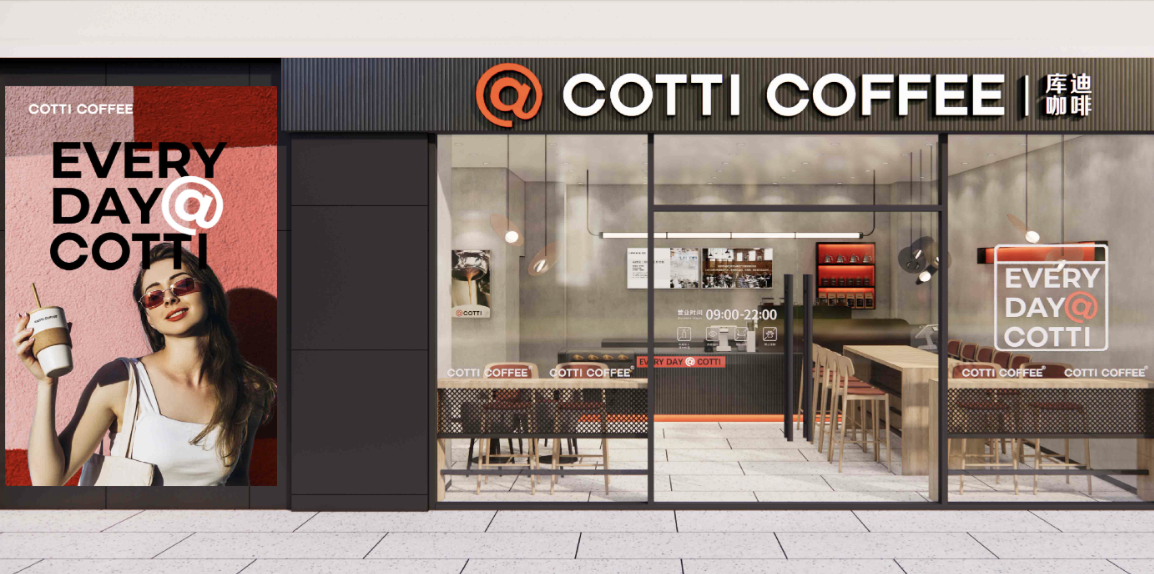Even as fierce competition continues on home ground, China’s coffee brands are expanding their ambitions, casting their sights across oceans.
In September, Nowwa Coffee revealed its plans to speed up its international expansion within the month. Southeast Asia, long a favorite for Chinese brands, is now just the start for Nowwa, which has North American and European markets in its crosshairs.
Nowwa isn’t the only brand ramping up its global push.
In March 2023, Luckin Coffee opened its first international store in Singapore. Meanwhile, its close rival, Cotti Coffee, chose Seoul, South Korea, as its first overseas base.
Since launching in Seoul in August 2023, Cotti has swiftly spread across Southeast Asia and opened new locations in Japan and Canada. It has even set down roots in the Middle East. According to 36Kr, Cotti now operates three stores in Doha, Qatar, and four in Dubai, UAE.
For Chinese coffee brands that have made overseas moves, Southeast Asia is beginning to lose its novelty. As Chinese capital and communities increasingly flow into the Middle East, these coffee brands see a new frontier brewing.
Next destination: the Middle East
In March 2024, Cotti opened its first store in the Middle East, setting up in Dubai’s Deira district, specifically in the Business Village area.
Far from the stereotype of opulence, Deira is one of Dubai’s older neighborhoods. The Business Village area where Cotti’s store is located draws Southeast Asian and Chinese white-collar workers and traders.
In July, Cotti opened a new store in Dubai Internet City, choosing a spot in Knowledge Park. Established in 2003, Knowledge Park is a free-trade zone offering tax exemptions, full foreign ownership, and profit repatriation. It has attracted numerous global companies and is home to some of Dubai’s most prominent universities, with students and professionals forming the main customer base.
Cotti’s approach in the Middle East mirrors its core strategy: even in Dubai, it targets familiar demographics, relying on a value-for-money edge to draw in customers.
As the first Chinese coffee brand to enter the Middle East, Cotti’s price advantage is quickly winning over local patrons.
According to 36Kr, in major cities like Doha and Dubai, a cup of freshly brewed coffee from brands like Starbucks can cost about RMB 40 (USD 5.6) per cup. Rainey, a Chinese expatriate working for a trading firm in Doha, shared how Cotti’s pricing stands out. “Cotti’s coffee is priced between QAR 10–15 (USD 2.8–4.1), which is quite affordable given Qatar’s high living costs.”
With seven stores launched in the Middle East within six months, Cotti has made a quick impression.
Yet, it was Luckin, Cotti’s close competitor, that initially considered the Middle Eastern market. Back in 2019, Luckin partnered with Kuwait-based Americana Group, aiming to challenge Starbucks’ stronghold in the region. However, management shifts and financial setbacks stalled Luckin’s plans, putting its Middle Eastern ambitions on pause. In March 2023, Luckin resumed its international expansion, launching in Singapore but not signaling any immediate plans for the Middle East.
An industry investor told 36Kr that news often circulated between Luckin and Cotti’s teams, suggesting that Cotti may have decided to stake a claim in the Middle East before Luckin could return.
Mapping the path in the Middle East
For Chinese coffee brands, the Middle East’s appeal may lie in the success that Chinese tea brands have enjoyed in the region.
In 2018, the popular milk tea brand Happy Lemon entered Dubai, opening five stores. Soon after, Koi, Yi Fang, Tiger Sugar, and Latea also moved in. As China’s tea industry growth slows, brands continue to look to the Middle East. In January 2024, Gong Cha signed a milestone franchise agreement with Saudi Arabia’s Shahia Food to open 300 stores across the region. As of this writing, Heytea’s WeChat mini program for partnerships lists open franchise applications for the UAE.
But compared to tea, coffee has deeper roots in Middle Eastern culture. As early as the 13th century, Ethiopians introduced coffee to the Arab world, where it quickly became a part of daily life.
Today, coffee culture in the Middle East is thriving.
Chen Xing, a Chinese expatriate in Saudi Arabia, noted that, with alcohol prohibited, coffee has become a mainstay social beverage in Saudi Arabia, with 24-hour coffee shops popular throughout the country. During Ramadan in March 2023, the Saudi Food and Drug Authority (SFDA) issued a reminder for consumers to moderate coffee intake when breaking their fast, recommending that healthy adults limit caffeine to 400 milligrams per day—about 15 small cups of traditional Saudi coffee (50 milliliters each).
According to Al Bayan, the UAE’s coffee market is projected to grow at an annual rate of 8.4% between 2023 and 2029, with per capita coffee consumption expected to reach 1.36 kilograms in 2023.
A mature coffee culture can ease market entry for foreign brands but also means strong competition from established local players. For Chinese coffee brands, building brand recognition in such a context could prove challenging.
Chen added that Saudi Arabia’s coffee culture has distinct regional characteristics. Religious restrictions on alcohol shape the landscape, while local coffee often includes unique spices for a signature taste.
Popular coffee varieties that incorporate alcohol, such as Irish coffee or Luckin’s “sauce-flavored latte” are prohibited in the Middle East.

Li Yingbo, COO of Cotti, said in an interview that Cotti plans to adjust products according to local tastes, from coffee bean roast levels to sweetness. However, 36Kr noted that Cotti’s Middle Eastern menu largely mirrors its Chinese offerings, with milk-based coffees as the mainstay.
So far, Cotti’s adaptations for international markets have involved only minor changes. Meeting the Middle East’s specific demands may require more substantial R&D investment and a broader selection of specialty offerings, which would add strain to its overseas supply chain.
Relying on low prices and broad market penetration alone may prove more challenging than anticipated for Chinese coffee brands seeking to establish a presence in the coffee-rich Middle East.
KrASIA Connection features translated and adapted content that was originally published by 36Kr. This article was written by Ye Danxuan for 36Kr.

